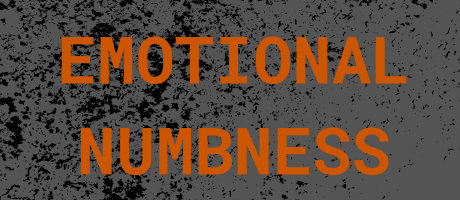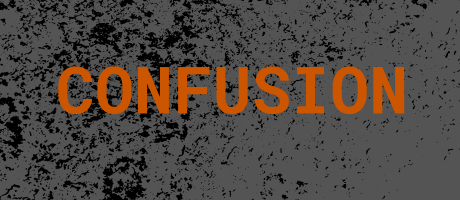Emotional numbness doesn’t mean you’re okay, it means your system is overloaded. You stop reacting. You stop feeling. You go on autopilot. For victims of abuse, this numbness becomes a survival strategy. It’s how you keep functioning when everything feels too heavy to carry. But the longer you stay numb, the harder it gets to reconnect with real life, and with yourself.

1. What Emotional Numbness Feels Like (Symptoms)
- Feeling detached from your emotions… like you’re watching your life happen
- Not reacting to things that should make you sad, happy, or angry
- Struggling to cry or laugh, even when you want to
- Zoned out or foggy, like your brain is underwater
- Feeling “empty,” bored, or blank, even when things are “fine”
2. How Emotional Numbness Affects You
Numbness shuts down more than just your emotions, it shuts down your ability to connect. You may find yourself drifting from loved ones, losing interest in relationships, hobbies, even sex. You might make reckless decisions just to feel something. Over time, numbness can become a lifestyle, one where nothing matters, because nothing feels real anymore.
3. Where Emotional Numbness Comes From
Numbness is a defense mechanism. When you’re exposed to chronic stress or emotional abuse, your brain protects you by flipping the “off switch.” It’s a form of dissociation, a way to survive overwhelming pain by dulling the response. You didn’t choose to shut down. Your system just did what it had to do.
4. What You Can Do About Emotional Numbness
- Reconnect with your body. Movement, stretching, cold showers, anything that wakes up your senses.
- Do things that used to bring you joy, even if you don’t feel it right away. Keep showing up.
- Start journaling or tracking your moods. Sometimes it takes effort to notice what you’re feeling.
- Talk to someone who won’t judge your flatness. The right person won’t pressure you to “cheer up.”
- Practice presence. Eat mindfully. Breathe. Look around. Anchor yourself in the real world.
5. What NOT to Do About Emotional Numbness
- Don’t confuse numbness with healing, silence isn’t the same as peace.
- Don’t self-medicate just to feel something. That road leads nowhere good.
- Don’t assume this is permanent. It’s not. You’re still in there.
6. Why You Need to Face Emotional Numbness
If you don’t face it, numbness becomes a prison. It disconnects you from joy, growth, relationships, and purpose. It tells you to stop caring, stop trying, stop hoping. But facing it means choosing to live again, not just exist. You’re not meant to be a robot. You’re meant to feel, even if that starts with just one honest emotion at a time.
7. When to Ask for Help With Emotional Numbness
If you can’t feel anything…
If you look in the mirror and don’t recognize yourself…
If you’ve stopped caring about things you used to love…
It’s time to get support.
A good therapist can help you unpack what’s underneath the numbness, because there is something underneath it.
And if you’re wondering, “What’s the point?”, this is the point: you deserve to feel human again.
(Also, no — watching 14 hours of Netflix to “feel emotions again” doesn’t count. But I respect the hustle.)
Brother’s Note
You’re not cold. You’re not dead inside. You’re just exhausted from pretending you’re fine.
You shut off to survive, and it worked. But now it’s time to turn the lights back on.
We’re not here to pressure you to feel anything you’re not ready for. We’re just here when you are.
I have personally been dealing with emotional numbness for almost 20 years, it did not help the fact that I took to long to realize what what going on and at the beginning I assumed I was just depressed. The interesting thing about emotions is that when they combine them with other negative emotions they are really hard to figure out on your own. Please consider getting professional help if you are feeling something is going on and you can’t understand the emotion.
Although not showing response when something bad happens may seem “ideal” when you feel you had suffered enough, it is not. Emotional numbness also prevents you from enjoying life, even the good stuff. Yes, you may still go out or play the social game, but you feel empty inside while doing it. You do things because you got used to do them, not because it brings you joy. It sucks.



